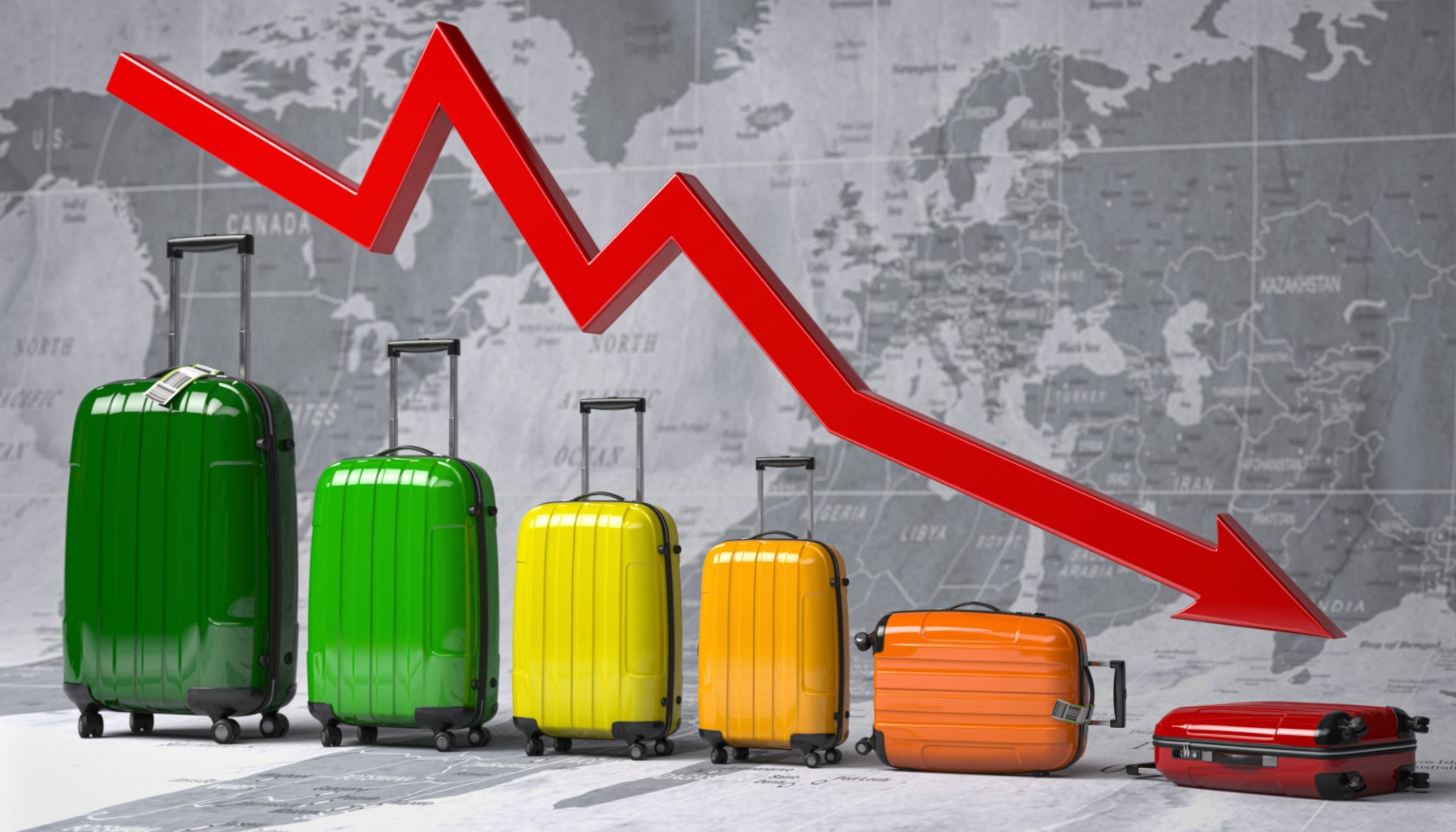T
he current Las Vegas tourism decline is casting a significant shadow on the city's real estate and housing market. Visitor numbers have dropped by 11.3% in June 2025 compared to the same period last year, with about 1.5 million fewer visitors in the first half of 2025. This decline has led to lower hotel occupancy rates, with April 2025 seeing a dip to around 82.9%, down from 85.3% the previous year.
The revenue per available room (RevPAR) has fallen by as much as 28.7% on busy holiday weekends, and even gaming revenue has taken a hit, failing to grow for five straight months in 2025. The slump in international tourism is particularly concerning, with some markets seeing drops of up to 63%. This has resulted in fewer people tipping, leading to service workers earning less, and unfortunately, even some layoffs in the hotel and casino industry.
The decline in tourism can be attributed to a complex web of factors, including higher prices, inflation, and economic worries. People are watching every dollar and thinking twice about paying premium prices when other destinations offer more bang for their buck. Places like Nashville are drawing crowds that might have once considered Vegas.
Policy decisions, such as tariffs and trade wars, can make international travel more complicated and expensive. Stricter immigration policies and global tensions have also made some travelers hesitant to visit the U.S. The "Trump slump" in tourism from certain countries is a theory worth considering.
The summer heat waves and fewer big events scheduled for 2025 have also contributed to the decline. This isn't just a Vegas problem, as many other popular U.S. tourist spots are also seeing a slowdown in visitors.
Las Vegas has always been good at bouncing back, but this current decline feels different. Past recoveries were often fueled by offering incredible value – great deals on hotels and experiences. This time, with higher prices, the value proposition might be weaker. If the city doesn't adjust its pricing strategy, this slump could last longer than usual.
The Las Vegas real estate market has been a rollercoaster itself, cooling down as of mid-2025. The median home price is hovering around $440,000 to $466,000, down about 2.2% compared to last year. Homes are sticking around on the market longer – the average is now 56 days.
The number of homes for sale (inventory) has shot up considerably, with active listings up 42% from the previous year. Home sales overall have dropped too, with a 22% decrease in 2023 compared to 2022. The rental market is also feeling softer, with vacancy rates around 9.0% and average rents at about $1,384.
Tourism and the real estate market in Las Vegas are closely linked. When tourism is strong, it creates jobs, driving up demand for homes and rentals. However, when tourism slows down, that chain reaction gets disrupted, leading to fewer people looking to buy or rent homes, putting downward pressure on prices and increasing vacancies.
The downturn in Las Vegas tourism in 2025 poses a real threat to the city's real estate market. We could see this leading to more unsold homes and prices that aren't growing as fast, or even falling in some areas. Historically, Vegas has been very dependent on tourism, making its real estate market vulnerable when visitor numbers drop.
However, the city is trying to diversify its economy and attract different types of visitors. If they can focus on offering better value and appealing experiences, they might be able to lessen the long-term damage. It's a situation worth watching closely, as what happens in Las Vegas can sometimes be a sign of what's to come for the broader U.S. economy.













